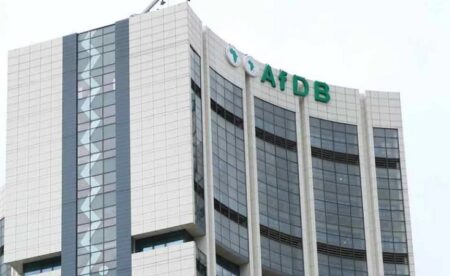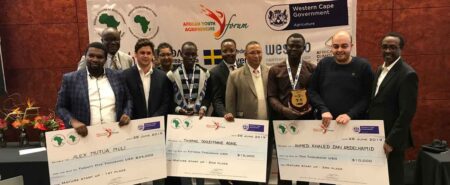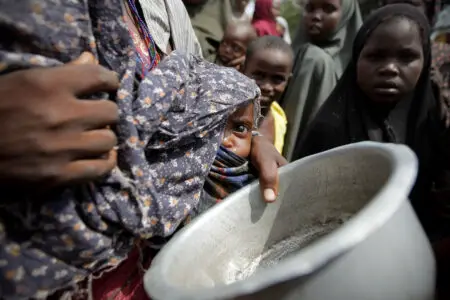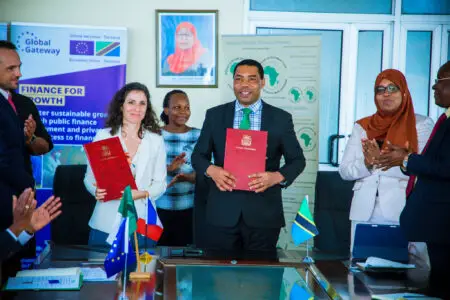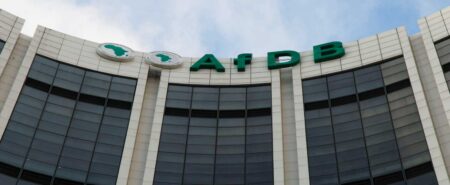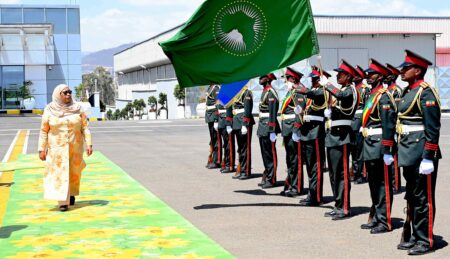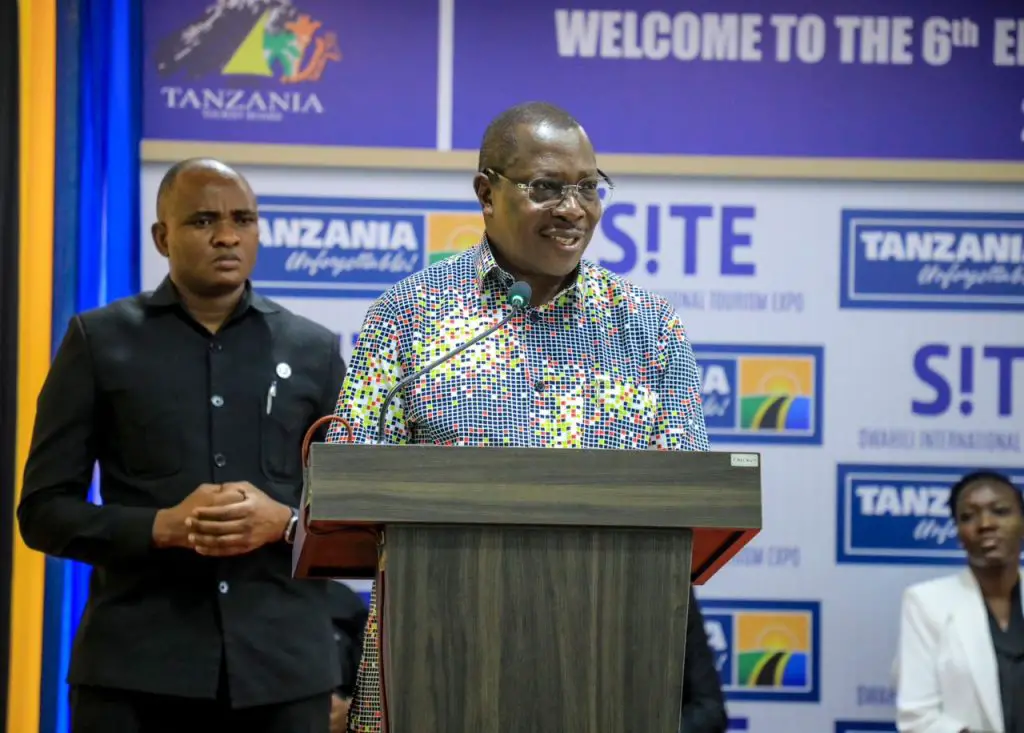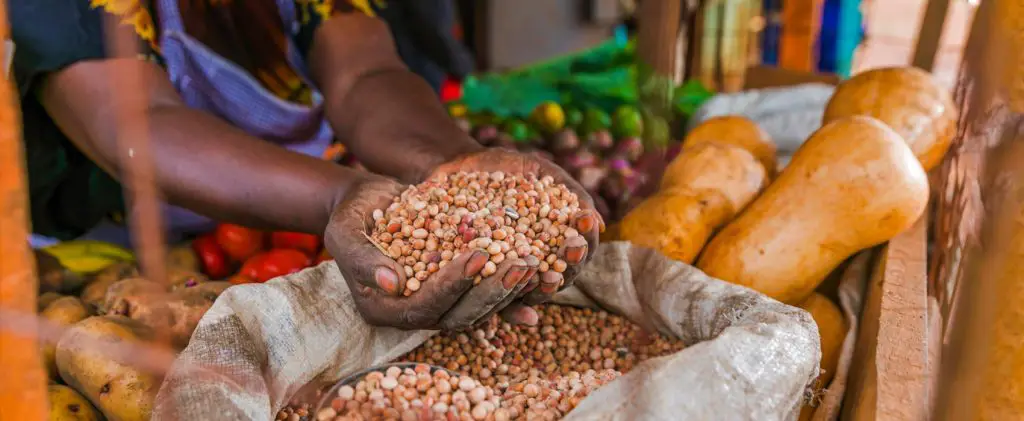- d.light’s 600,000 cookstoves project verified as top source of quality carbon credits
- Artificial intelligence (AI) could create a turning point for financial inclusion in Africa
- AIM Congress 2024: Catalysing global investments with awards
- Kenya’s economic resurgence in 2024
- The most stressful cities to live in 2024 exposed
- Tech ventures can now apply for the Africa Tech Summit London Investment Showcase
- State of journalism survey 2024 shows media houses are lagging in AI adoption
- Forum sets the stage to unleash global potential for startups during AIM Congress 2024
Browsing: AfDB in Tanzania
- AfDB signs a risk facility worth over $150 million to boost financial inclusion.
- Survey shows risk-supported Commercial Banks in Africa can play a key role in poverty eradication.
- Increased access to capital loans will help lower-income families increase their household earnings
To boost intra-Africa trade in line with the aspirations of the African Continental Free Trade Area (AfCFTA), the African Development Bank Group has approved a $150 million risk facility.
The funding will be through the Trade Finance Unfunded Risk Participation Agreement, a deal which has been entered between the African Development Bank (AfDB) and the Trade & Development Bank (TDB).
Under this agreement, “the AfDB will provide guarantee cover of 50 per cent and up to 75 per cent for transactions in low-income countries and transition states on a risk share basis with TDB to a number of qualifying local and regional banks,” the bank states.
In this first …
- Africa Development Bank (AfDB) has launched the Africa Fertilizer Financing Mechanisms (AFFM) to boost purchase of the critical farm input across the continent.
- The Food and Agriculture Organization (FAO) warns that Africa is spending less on agriculture development than the rest of the world.
- AFFM has already secured $10.15 million in new funding from the Norwegian Agency for Development Cooperation (NORAD).
Shortage of fertilizer in Africa continues as the war between its main suppliers Russia and Ukraine enters the second year. To increase food productivity and security, African countries need increased access to fertilizer, nut until this dilemma is resolved, food security is off the table.
Access to fertilizer in Africa is very limited, where available, this basic agro-input for increased production is simply too expensive for effective use.
Such shortcomings were meant to be addressed by progressive initiatives such as the Maputo Agreement that was signed in Mozambique in …
- The future of agriculture is digital not the hand-hoe
- The more efficient a farm is, the more productive it becomes without necessarily increasing land size.
- AfDB awards US$140,000 in grants to AgriPitch competition winners
Agriculture development for food security and poverty reduction cannot be realized without the adaptation of digital solutions.
Digital solutions offer more effective traceability, compliance and farm management systems which make the commercial, large or small, much more effective. In these modern times of food scarcity in the face of ever-increasing demand, efficiency is the name of the game.
The more efficient a farm is, the more productive it becomes without necessarily increasing land size or the amount of crops or animals.
“When it comes to subsistence agriculture, digital transformation is no longer a choice – it’s a need. You can either go digital or disappear,” warns Simon Winter, Executive Director at Syngenta Foundation for Sustainable Agriculture …
- AfDB announces US$ 1.5 billion funding for emergency food responce
- AfDB pledges seeds & fertilizers for 20 million smallholder farmers
- Oxfam warns of famine in Somalia
In May 2022, the African Development Bank (AfDB) Board of Directors approved $1.5 billion in funding for what the bank called the African Emergency Food Production Facility; one year down the road, has the funding achieved its purpose?
AfDB President Akinwumi Adesina described the facility as a necessary support for Africa’s emergency food response in the face of shortages caused by the Russia-Ukraine war.
The bank’s President said the funding will help to significantly increase food production in Africa and avert what he at the time described as ‘the looming food crisis caused by the Russia-Ukraine war.’
Making the announcement at the Summit of G7 leaders last year in Washington, Mr. Adesina announced that the African Development Bank (AfDB) would out of its own …
- Tanzania signs 161.47 million US dollars to implement Kakono HPP in Lake Zone
- European Union (EU) to chip in additional 35 million Euro for Kakono HPP
- Kakono HPP will take five years to complete, feature a primary school, health centre
The government of Tanzania has secured funding for the Kakono Hydropower Project (Kakono HPP). The project is in line with the country’s Third Five-Year Development Plan (FYDP III) and aligns with President Samia Suluhu’s plan to foster a competitive industrial economy.
The Lake Zone, in the north-western part of Tanzania, is one of the country’s highest fossil fuel consuming region due to the low coverage by the national electricity grid. The region uses diesel generators making the region expensive for investors and residents.
Funding a US$325 million power project in E. Africa
Also Read: French Development Agency provides $30 million for African SMEs
With assistance from the African Development Bank …
Against all odds, Africa is enjoying faster economic growth than the rest of the world, and it will continue to do so for the next foreseeable future. This is according to the latest review by the Africa Development Bank (AfDB) which projects that the continent’s Gross Domestic Product (GDP) will grow 4% annually, on average, much better than the global average.
Released in Abidjan, Africa’s Macroeconomic Performance and Outlook Report indicates that in the medium-term, most regions in Africa will have moderate to strong economic performance.
“Despite facing significant headwinds due to global socio-economic shocks, all the five regions on the continent remain resilient with a steady outlook,” the report reassures stakeholders.
Also Read: Financing SMEs: Basis for impressive economic outlook
However, the report does highlight some red flags to watch out for that will require robust monetary and fiscal measures and structural policies.
The report is released at the …
- Tanzania launches Youth Guarantee Scheme and Loan Facility
- Special scheme to give 11,000 acres to its youth for agriculture
- Youth empowerment initiative to be overseen by the Agricultural Input Trust Fund
Tanzania is giving land to the youth to boost agricultural productivity and create employment.
While speaking at the Africa Food Summit in Dakar, Senegal, Tanzania President Samia Suluhu Hassan announced that the state will give 11,000 acres to it’s youth for agricultural production.
Suluhu explained that the decision is part of the country’s ‘Building a Better Tommorrow’ (BBT) initiative. Through a special programme, the Tanzanian government has announced that it will give qualifying youth access to land ownership as part of the country’s ongoing initiative to secure economic empowerment for its youth, the largest part of its population.
The move is part of an ongoing national agricultural development initiative that is meant to develop the sector for economic empowerment. …
There is a shift, a change in the nature and composition of Tanzania’s workforce from labour-intensive to skilled labour. This shift is well received as the report authors describe it as ‘a good sign of economic transformation’ it is a sign Tanzania mechanisation.
The report authors contend that the fact that the proportion of labour employed in agriculture has decreased while that in other sectors, notably manufacturing and services, has increased, then it is a clear sign of an industrializing nation.
Agriculture mechanization in Tanzania is also evident in the fact that even though employment in the sector is decreasing, but the sector’s overall performance is actually increasing.
According to Tanzania’s Commissioner of Financial Sector Development, Dr Charles Mwamwaja, between 2015 and 2019, the agriculture sector grew at an average of 5.2 per cent, while the subsector of agricultural products continued growing at an average of 5.8 per cent.…
According to the 2022 National Tourism Survey, tourism earnings in Tanzania have shown positive comeback post Covid-19.
The figures indicate a good recovery trajectory with data showing that the sector is up 83% having earned an impressive 1.4 billion USD and tourist receipts of 922,692 which represents an increase of about 48.6% compared to the 2020 performance.
According to the Tanzania National Five Year Development Plan 2021/2022-2025/2026, the country targets to attract 5 million tourists and garner revenues of US$ 6 billion.
The tourism sector contributes to the country’s GDP by an impressive 17%, and its contribution to foreign exchange earnings is more than a quarter (25 percent) of the country’s total foreign exchange earnings.…
Food security in Africa has always been the centre stage of all major global meetings. Photos of starving naked children have been paraded so much that hunger and Africa have become synonymous.
However, after years of talks, recommendations, solutions, funding, monitoring, evaluation, more talks, more recommendations, more funding…and then more years of new talks, new recommendations, new solutions, new funding… it’s exhausting; Africa is still hungry!
The cool acronyms, the endless list of organizations, the countless projects and initiatives, the billions upon trillions issued every year, its all mind-boggling.
Global Development Goals (GDG), Sustainable Development Goals (SDG), World Food Organisation (WFP), International Monetary Fund (IFM), World Bank (WB), African Development Bank (AfDB), Alliance for a Green Revolution in Africa (AGRA)…it goes on and on.…





